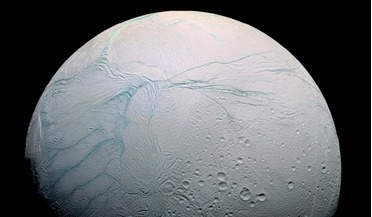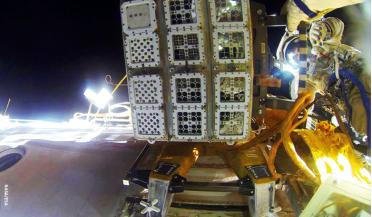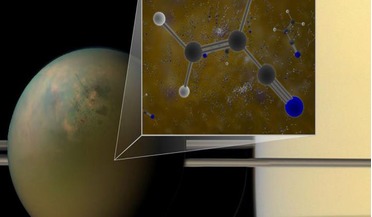 November 2025
Searching for life beyond Earth
November 2025
Searching for life beyond Earth
...Her groundbreaking work on exoplanets, atmospheric biosignatures and space mission design has helped redefine the frontiers of astrobiology. In this exclusive interview for ROOM by Steve Kelly she shares her insights on the latest discoveries, future...
 February 2016
Is Jupiter Really Our Protective Shield?
February 2016
Is Jupiter Really Our Protective Shield?
... Jones, and J. Chambers(2010) Jupiter - friend or foe? III: The Oort Cloud Comets. International Journal of Astrobiology, 9:1-10. 35 Grazier, K.R., J.C. Castillo-Rogez, P.W. Sharp (2014) Dynamical Delivery of Volatiles to the Outer Main Belt, Icarus...
 October 2018
Looking for life on Enceladus with IceMole
October 2018
Looking for life on Enceladus with IceMole
... and radioactive contamination. These expanded planetary protection concerns are expected to be a critical aspect for future in-situ astrobiology missions. Power sources The main critical point for this mission is the power needed for the...
 15 August 2016
Was early Mars warmed by cirrus cloud cover?
15 August 2016
Was early Mars warmed by cirrus cloud cover?
.... But how Mars sustained a climate suitable for liquid water to flow has been a major interest for astrobiological researchers for some time. Now researchers in the U.S modelling Mars’ climate are honing in on how Mars stayed...
 September 2023
How microorganisms survive space travel
September 2023
How microorganisms survive space travel
... to other celestial bodies and, vice versa, infection of Earth by alien forms The most effective element of the astrobiological search algorithm would be the possibility of awakening dormant forms by adequate signals. The data obtained in the last...
 31 July 2017
Complex chemistry on Titan may form membranes
31 July 2017
Complex chemistry on Titan may form membranes
...that equates to roughly a million bacteria per quarter teaspoon of coastal ocean water. "The detection of this elusive, astrobiologically relevant chemical is exciting for scientists who are eager to determine if life could develop on icy worlds such...